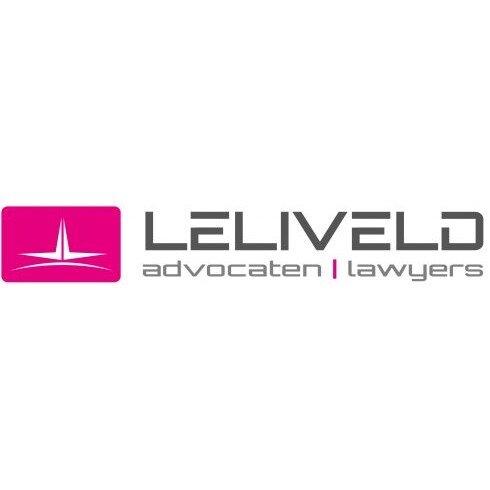Best Debt & Collection Lawyers in Maastricht
Share your needs with us, get contacted by law firms.
Free. Takes 2 min.
List of the best lawyers in Maastricht, Netherlands
About Debt & Collection Law in Maastricht, Netherlands
Debt and collection laws in Maastricht, Netherlands, are part of the broader Dutch legal framework governing financial obligations and creditor-debtor relationships. These laws encompass various measures and regulations aimed at ensuring fair practices in debt recovery and protecting the rights of debtors. Maastricht, known for its vibrant economy and historical significance, adheres to these national laws, with local enforcement by the municipal authorities. The legal structure aims to balance the interests of creditors in recovering debts while safeguarding individuals and businesses from unfair collection practices.
Why You May Need a Lawyer
Legal assistance in debt and collection matters can be crucial for several reasons. Common situations where you might need a lawyer include:
- You are a creditor needing help recovering unpaid debts.
- You face harassment from collection agencies as a debtor.
- You need advice on negotiating settlement terms with creditors.
- You are considering bankruptcy and need guidance on the implications for existing debts.
- You dispute a debt's validity or the amount claimed by a creditor.
Local Laws Overview
The key aspects of local laws relevant to debt and collection in Maastricht include:
- Consumer Protection: The laws protect consumers against unfair practices, ensuring transparency in the collection process.
- Debt Collection Agencies Regulation: Agencies must adhere to strict guidelines regarding communication with debtors, fees, and procedures.
- Interest and Fees Limits: The interest rates and additional fees charged on debts are regulated to prevent excessive burden on debtors.
- Legal Proceedings: Specific regulations govern the initiation of legal action for debt recovery, including the requirement for clear documentation and fair hearing procedures.
- Bankruptcy Proceedings: The laws outline the processes for both personal and corporate bankruptcies, emphasizing restructuring and resolution.
Frequently Asked Questions
What can I do if a collection agency is harassing me?
You can file a formal complaint with the collection agency and, if unresolved, lodge a complaint with the Authority for Consumers and Markets (ACM) or seek legal assistance.
How can I verify if a debt is valid?
Request a debt validation letter from the creditor or collection agency, which must provide details about the debt, including the original creditor and the amount owed.
What is the maximum interest rate collectors can charge?
The maximum interest rate is capped under Dutch law, and it varies based on the contract terms and type of credit. It's important to verify the applicable rate for your situation.
Can a debt collector take me to court?
Yes, if a debt remains unpaid after all attempts to recover it, the creditor may initiate legal proceedings to recover the amount through court intervention.
What should I do if I receive a court summons regarding a debt?
It is crucial to respond promptly, either by attending the hearing or providing a legal defense. Seek legal advice to prepare your case adequately.
How can a lawyer help in negotiating with creditors?
A lawyer can assist in reviewing the debt's legitimacy, represent you in negotiations, and help formulate a repayment plan that is feasible and acceptable to creditors.
Is bankruptcy a viable option for me?
Bankruptcy can be a viable option if you are unable to meet your debt obligations, but it comes with long-term financial implications. Consult a lawyer to explore this option thoroughly.
Are all debts dischargeable in bankruptcy?
No, certain types of debts, such as fines, certain taxes, and child support, are not dischargeable under Dutch bankruptcy law.
Can wages be garnished for debt repayment?
Yes, wages can be garnished, but there are protective measures in place to ensure a debtor retains sufficient income to meet basic living expenses.
How do installment plans work for debt repayment?
Installment plans allow debtors to repay their debt over time in manageable amounts. They can be negotiated directly with creditors or through court-ordered arrangements.
Additional Resources
For further guidance on debt and collection matters, consider contacting the following resources:
- Authority for Consumers and Markets (ACM): Provides oversight on consumer protection and fair practices.
- Legal Aid Counsels: Offer free or low-cost legal assistance based on income eligibility.
- Bureau Schuldhulpverlening (Debt Assistance Bureau): Assists residents of Maastricht with personal debt issues.
- Nationale Ombudsman: Handles complaints about improper conduct by governmental bodies in debt collection.
Next Steps
If you require legal assistance in debt and collection issues, consider the following steps:
- Contact a local attorney specializing in debt and collection law to discuss your situation.
- Gather all relevant documentation related to your debt, such as contracts, communication with creditors, and any court documents.
- Evaluate your financial situation to understand your capabilities and limitations in addressing the debt.
- Consider contacting local debt assistance services for initial advice and support.
Engaging with a legal professional can provide clarity, ensure your rights are protected, and guide you toward an optimal resolution for your debt concerns.
Lawzana helps you find the best lawyers and law firms in Maastricht through a curated and pre-screened list of qualified legal professionals. Our platform offers rankings and detailed profiles of attorneys and law firms, allowing you to compare based on practice areas, including Debt & Collection, experience, and client feedback.
Each profile includes a description of the firm's areas of practice, client reviews, team members and partners, year of establishment, spoken languages, office locations, contact information, social media presence, and any published articles or resources. Most firms on our platform speak English and are experienced in both local and international legal matters.
Get a quote from top-rated law firms in Maastricht, Netherlands — quickly, securely, and without unnecessary hassle.
Disclaimer:
The information provided on this page is for general informational purposes only and does not constitute legal advice. While we strive to ensure the accuracy and relevance of the content, legal information may change over time, and interpretations of the law can vary. You should always consult with a qualified legal professional for advice specific to your situation.
We disclaim all liability for actions taken or not taken based on the content of this page. If you believe any information is incorrect or outdated, please contact us, and we will review and update it where appropriate.









